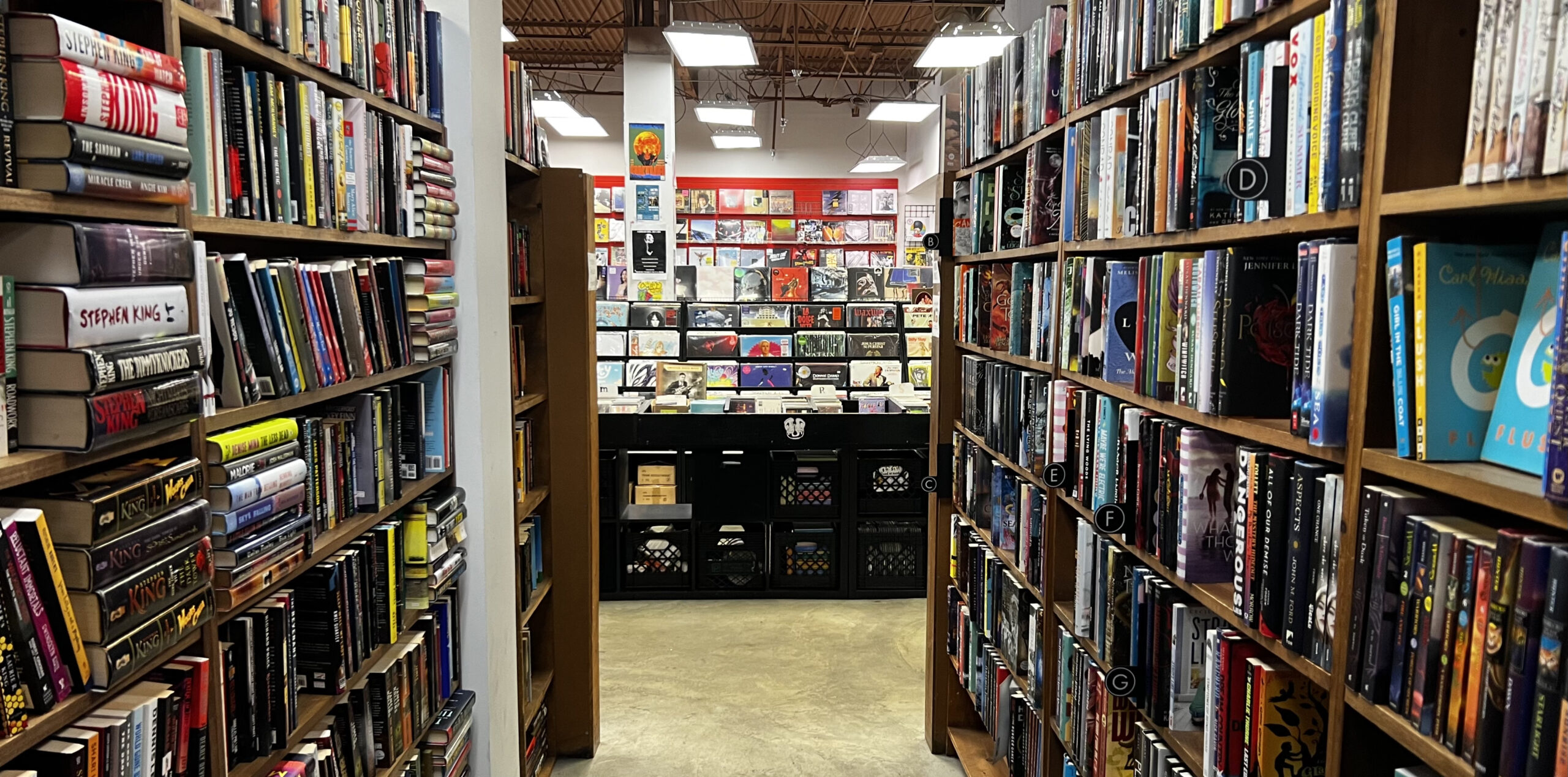By Sam Poulin / USF Z School
TAMPA – When Melanie Cade and Dan Drummond opened Mojo Books and Records in April 2007, they felt like the right time to do so. Despite thousands of stores closing during the Great Recession, they survived month to month with a shoestring budget and creative thinking.
Cade sold used books and Drummond sold pre-owned records at the USF Bulls Market starting in 2000. In 2006 while she was finishing her master’s degree on campus, the two saw an opportunity to fill a niche left by a lack of local book and record stores in the area, so they joined forces. As they looked for a property near campus, the old couple who owned Just Books on Fletcher Avenue wanted to retire which let them fill that niche.
“At the time, the vinyl revival hadn’t quite happened, it was starting to happen in some larger cities but it still very much, like, early adoption period,” said Cade. “And like locally, here it hadn’t really happened, so that was more of an experiment.”
Their main problems when they opened were making rent and the negative rhetoric surrounding bookstores. According to a report from the FDIC, 20% of small businesses which went out of business during 2007-2009 were retail stores. This added pressure of the media and economists’ rhetoric surrounding bookstores weighed on the owners.
“If you looked at, you know, news stories at the time, it would be about ‘bookstores are closing, record stores are closing, everybody is switching to MP3s or to eBooks,’” she said. “There wasn’t a ton of hope in like the broader culture or expectation that it was going to change.”
Mojo Books and Records thrived in the same strip mall through two moves, economic recessions, and a global pandemic. Not every business was as fortunate. According data from the Federal Reserve, more than two million closed throughout 2020, most of them being small businesses with less than 50 employees.
Yanina Rosario is the associate director of the Florida Small Business Development Center on campus at the University of South Florida. She said businesses that survived the pandemic had their finances in order and adapted to how people changed their shopping habits.
“What we know is that after a situation, it be an economic downturn, recession, pandemic, you’re going to have business that will never recover from it,” she said.
Those who managed like Mojo offered scheduled shopping hours to limit the number of customers in the store at a time, free delivery for online orders, “mystery shopping” where staff surprised customers based on their tastes and budget as well as other tactics to limit exposure. The improvements to their presences online also tended to increase foot traffic through the stores when they returned to normal operation.
This offers extra flexibility for businesses during economic hardships and widens the scope of clientele drawn through the doors. Customers are also drawn to comfortable spaces where they’re encouraged to hang out and work or spend with friends. Many bookstores have a drink bar that sells coffee and teas for those working on their free wi-fi. These conveniences increase the chances of people staying in the store longer and visiting again.
An example of this is Oxford Exchange, which was opened by Blake Casper and Allison Adams and was created first as a bookstore. They host over 150 community events across their properties, including book clubs and bookfairs for local authors to sell their works. Their next bookfair scheduled for April 25. Laura Taylor, the director of programing for Oxford Commons in charge of these events, says these opportunities to interact with the public are important to curating enriching, open conversations.
She said the versatility of Oxford Exchange was a huge advantage as they weathered the pandemic. The crosspollination between different parts of the business allowed those coming for brunch and photos or to work may wander into one of the retail spaces and make another purchase. This paired with their community programming helped foster a unique atmosphere which grew into a Tampa tourist destination.
“Spaces aren’t just one thing anymore,” Taylor said. “For our model, a bookstore, our bookstore isn’t just a bookstore. It’s part of a restaurant, it’s part of a hospitality organization that has many reasons for people to come through the door.”

